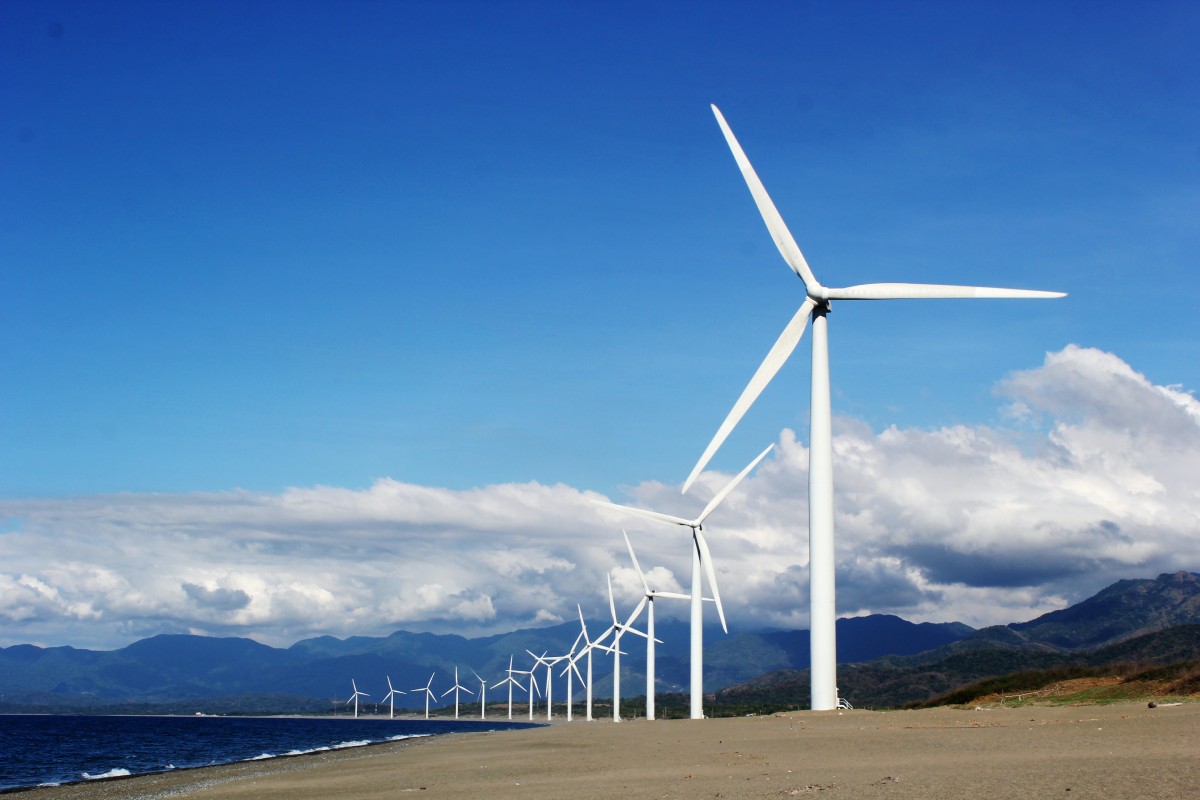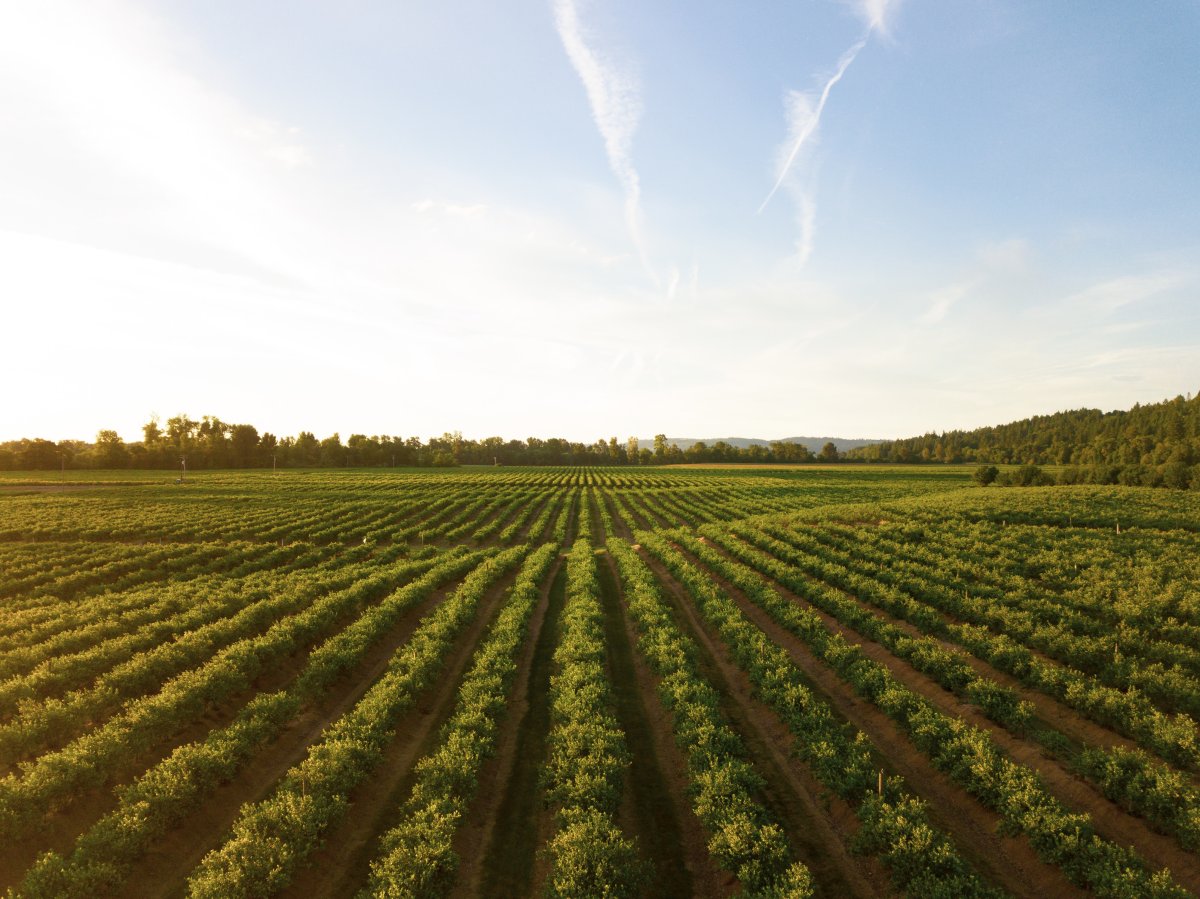Introduction
In the epoch of climate awareness and sustainable living, green jobs have emerged as a pivotal sector, offering promising career paths for individuals passionate about contributing to the well-being of our planet. These jobs, rooted in environmental consciousness, are not just limited to the fields of renewable energy and conservation; they span across various industries, promoting sustainable practices and innovative solutions to environmental challenges.
The notion of green jobs is grounded in the belief that it is possible to achieve economic growth and development while preserving the natural environment. It’s about striking a balance, ensuring that our pursuit of prosperity does not come at the expense of the planet’s health. The rise of this sector is a testament to the growing realization that sustainability and economic progress can, and indeed must, go hand in hand.
Defining Green Jobs
Green jobs are positions in companies, organizations, or government entities that significantly contribute to preserving or restoring the environment. Whether it’s through developing clean energy solutions, enhancing efficiency in resource use, or protecting ecosystems, these jobs play a crucial role in building a sustainable future. They span a plethora of fields including energy, agriculture, transportation, and manufacturing, reflecting the all-encompassing nature of environmental sustainability.
Importance of Green Jobs in Today’s Society
In a world grappling with the repercussions of climate change, resource depletion, and environmental degradation, green jobs stand as a beacon of hope and progress. They not only aid in mitigating the impacts of environmental challenges but also drive innovation and create economic opportunities. The significance of green jobs transcends environmental benefits; it encompasses social and economic dimensions, fostering inclusive growth and paving the way for a just transition to a green economy.
Brief Overview of the Diverse Range of Green Careers Available
The spectrum of green careers is as diverse as it is promising, offering opportunities for individuals with varied skills and interests. From renewable energy engineers working on the frontlines of the clean energy transition, to sustainability consultants helping businesses reduce their environmental footprint, the options are vast and varied. Urban planners play a critical role in creating sustainable cities, while environmental scientists and specialists work tirelessly to understand and address environmental issues. In agriculture, there’s a growing demand for experts in sustainable farming practices, ensuring that food production doesn’t compromise the health of our planet.
The advent of green careers marks a pivotal shift in our approach to work and the environment. It’s a sector that not only demands technical expertise but also a profound commitment to the values of sustainability and responsibility. As we navigate the challenges of the 21st century, green jobs stand out as a vital component of a resilient, sustainable, and equitable future.
Understanding Green Jobs
Green jobs serve as a cornerstone in the transition towards a more sustainable and environmentally conscious economy. By integrating ecological considerations into employment, these roles foster a harmonious balance between economic activity and environmental stewardship. As our global society acknowledges the pressing need to address climate change and environmental degradation, the prominence of green jobs continues to escalate, offering a pathway to sustainable development and innovation.

In essence, green jobs encapsulate a future-oriented work ethos, ensuring that the jobs we create and pursue contribute positively to the planet. They are pivotal in driving forward sustainable practices, innovating in the fields of renewable energy, conservation, and sustainable agriculture, among others. Understanding green jobs requires an appreciation of their multifaceted nature and their potential to revolutionize industries while safeguarding the environment.
Explanation of the Concept of a Green Job
At its core, a green job actively contributes to preserving or restoring the quality of the environment. These roles aim to minimize waste and pollution, reduce carbon footprints, and conserve natural resources, ultimately contributing to the sustainable development of our planet. Green jobs are not confined to new or emerging sectors; they also encompass traditional roles that have evolved to integrate sustainable practices. From engineers developing cutting-edge renewable energy technologies to farmers adopting sustainable agriculture practices, green jobs are diverse and expansive.
Different Categories of Green Jobs
Green jobs manifest across various sectors and industries, reflecting the widespread applicability of sustainable practices. In the energy sector, jobs in solar and wind power generation stand prominent. The manufacturing sector sees roles in producing energy-efficient appliances and vehicles, while the construction industry offers green jobs in designing and building sustainable infrastructures. In agriculture, sustainable farming practices give rise to green jobs, and in education and consulting, professionals play a crucial role in advocating for and implementing sustainable practices.
Renewable Energy and Clean Tech
Jobs in renewable energy and clean technology are at the forefront of the green job movement, driving innovation and change towards cleaner alternatives. Professionals in this category work on developing, implementing, and maintaining solar panels, wind turbines, and other renewable energy sources.
Conservation and Sustainability
Roles focused on conservation and sustainability aim to protect natural habitats, conserve biodiversity, and promote sustainable resource use. This category encompasses jobs in forestry, wildlife conservation, and environmental education.
Green Infrastructure and Transportation
This category involves creating sustainable urban spaces and transportation systems. Urban planners, architects, and transportation specialists work to reduce emissions, enhance energy efficiency, and promote sustainable practices within cities.
The Growth and Impact of Green Jobs on the Economy
Green jobs are pivotal in fostering a resilient economy, driving innovation, and creating new opportunities for employment. Their growth reflects a global shift towards sustainability, as industries adapt to changing environmental standards and consumer preferences. The impact of green jobs extends beyond the immediate benefits of reduced environmental degradation; they also play a crucial role in stimulating economic activity, creating jobs, and contributing to a robust and sustainable economy.
The proliferation of green jobs signifies a transformative shift in our approach to work and the environment. As we continue to grapple with the challenges of climate change and resource depletion, green jobs stand as a testament to our capacity for innovation and resilience, proving that economic prosperity and environmental stewardship can indeed coexist.
Green Jobs in Renewable Energy
The renewable energy sector stands out as a vibrant field within the green job market, offering a range of careers that contribute directly to reducing greenhouse gas emissions and mitigating climate change. As the world pivots towards sustainable energy sources, the demand for skilled professionals in this sector continues to soar, creating abundant opportunities for those eager to make a difference. Jobs in renewable energy not only promote environmental health but also drive innovation and economic growth, marking a significant stride towards a sustainable future.

Delving into the realm of renewable energy careers reveals a landscape brimming with potential, diversity, and the promise of a brighter, cleaner future. It is a sector characterized by rapid growth, technological innovation, and a shared commitment to creating a sustainable energy landscape. Whether it’s harnessing the power of the sun, wind, or water, careers in renewable energy are at the forefront of the global transition to a green economy.
Introduction to Careers in the Renewable Energy Sector
The renewable energy sector encompasses a variety of fields including solar power, wind energy, hydropower, and bioenergy. Careers in this sector range from engineers and technicians responsible for designing and maintaining renewable energy systems, to scientists conducting research on innovative energy solutions. Sales and marketing professionals play a crucial role in promoting renewable energy products, while policy analysts and advocates work to create a supportive legislative environment.
Solar Energy
Solar energy careers involve the design, installation, and maintenance of solar panels. Professionals in this field work to convert sunlight into electricity, providing clean and sustainable energy solutions.
Wind Energy
Wind energy professionals focus on harnessing the power of the wind to generate electricity. This field offers roles in turbine design, installation, operation, and maintenance, contributing to the growth of this clean energy source.
Hydropower and Bioenergy
Hydropower careers are centered around generating electricity from flowing water, while bioenergy jobs focus on producing energy from biological materials. Both sectors offer a variety of technical, research, and operational roles.
Key Roles and Job Descriptions
Renewable energy careers are diverse, offering roles suited to a range of skills and interests. Engineers and technicians are crucial for designing, installing, and maintaining renewable energy systems. Project managers ensure that energy projects are completed on time and within budget, while researchers and scientists develop new technologies and solutions to enhance the efficiency and effectiveness of renewable energy sources. Sales and marketing professionals work to promote renewable energy products and services, playing a vital role in the sector’s growth.
Future Prospects in Renewable Energy Careers
The future of careers in renewable energy looks promising, driven by global commitments to reduce greenhouse gas emissions and transition to sustainable energy sources. As technology advances and the cost of renewable energy continues to decrease, the sector is poised for exponential growth, offering ample opportunities for professionals eager to contribute to a sustainable future. The continuous innovation and investment in renewable energy underscore its potential as a major player in the green job market, ensuring that careers in this sector remain both relevant and rewarding.
Green Jobs in Conservation
The field of conservation represents a crucial component of the green job sector, offering career opportunities dedicated to protecting natural resources, preserving biodiversity, and promoting sustainable use of our planet’s ecosystems. As global awareness of environmental challenges grows, so does the demand for skilled professionals capable of balancing human needs with the imperative to protect the environment. Conservation jobs play a vital role in this balance, contributing to environmental stewardship, habitat restoration, and the safeguarding of endangered species.

Embarking on a career in conservation means joining a field driven by passion, commitment, and a deep-seated respect for the natural world. It’s a sector that requires a blend of scientific knowledge, fieldwork skills, and a relentless dedication to making a positive impact on the planet. Whether working in the field to restore degraded ecosystems or in a lab conducting research to inform conservation strategies, professionals in this sector are united by a common goal: to protect and preserve our natural world for future generations.
Overview of Careers Related to Conservation
Conservation careers are incredibly diverse, spanning a range of disciplines including biology, ecology, forestry, and wildlife management. Roles in this sector include conservation scientists and biologists who study ecosystems and wildlife, developing strategies to protect and restore them. Foresters manage forested areas, ensuring sustainable timber production and ecosystem health, while environmental educators work to raise awareness about conservation issues.
Wildlife Biology
Wildlife biologists focus on studying animals and their habitats, working to understand the challenges they face and developing strategies to protect endangered species and preserve biodiversity.
Ecological Restoration
Professionals in ecological restoration work to repair ecosystems that have been degraded or damaged, employing a range of techniques to restore natural processes and habitats.
Environmental Education
Environmental educators play a crucial role in conservation, working to increase public awareness and understanding of environmental issues, and promoting sustainable practices.
Roles and Responsibilities of Conservation Jobs
Conservation professionals carry a multitude of responsibilities, all centered around the goal of preserving the natural world. They conduct research, monitor wildlife populations, develop and implement management plans, and engage in habitat restoration efforts. Advocacy and policy development are also key components of conservation work, as professionals strive to influence legislation and public opinion in favor of environmental protection.
Importance of Conservation Work in the Context of Climate Change
In the face of climate change, conservation work has never been more critical. The changing climate poses significant threats to biodiversity, ecosystems, and the services they provide to humanity. Conservation jobs are vital in mitigating these impacts, preserving habitats, protecting endangered species, and contributing to global efforts to adapt to and combat climate change. Through research, management, and advocacy, conservation professionals play a central role in safeguarding the planet’s biodiversity, ensuring the resilience of natural systems, and fostering a sustainable relationship between humans and the natural world.
Green Jobs in Sustainable Agriculture
The shift towards sustainable agriculture is a critical component in the global movement for environmental stewardship, making green jobs in this sector more relevant than ever. Sustainable agriculture aims to meet society’s current food needs without compromising the ability of future generations to meet their own. It encompasses a range of practices that are ecologically sound, economically viable, and socially responsible. The careers in this field are diverse, spanning from hands-on farming and research to policy-making and education, all united by a common goal: to cultivate food in ways that preserve the environment, support local communities, and protect public health.

A career in sustainable agriculture offers an opportunity to contribute positively to the environment, society, and economy. It is a field that encourages innovation, resilience, and a deep connection to the land, promoting agricultural practices that are in harmony with nature and beneficial to local communities.
Description of Careers in Sustainable Farming and Agriculture
Sustainable agriculture jobs cover a broad spectrum, offering roles for individuals with diverse skills and interests. Farmers practicing sustainable agriculture focus on crop diversity, soil health, and water conservation, aiming to produce food efficiently while minimizing their environmental impact. Agricultural scientists and researchers play a crucial role in developing innovative farming practices, studying soil health, pest management, and crop genetics to enhance the sustainability of agricultural operations.
Organic Farming
Organic farmers adhere to strict guidelines that prohibit the use of synthetic pesticides and fertilizers, focusing instead on natural methods to maintain soil fertility and control pests.
Agroecology
Agroecologists combine principles from ecology and agriculture to create sustainable farming systems that are both productive and environmentally friendly.
Sustainable Livestock Management
Sustainable livestock managers focus on humane animal husbandry practices, aiming to raise animals in ways that are ethical, environmentally sound, and economically viable.
Explanation of the Role of Sustainable Agriculture in Food Security
Sustainable agriculture is integral to achieving food security, ensuring that current and future generations have access to sufficient, safe, and nutritious food. By promoting biodiversity, enhancing soil fertility, and supporting local economies, sustainable farming practices contribute to resilient food systems capable of withstanding the challenges posed by climate change, resource scarcity, and population growth.
Future of Sustainable Agriculture Jobs
The future of sustainable agriculture jobs looks promising as the global community increasingly recognizes the need for farming practices that are environmentally friendly, economically viable, and socially just. As demand for organic and locally produced food continues to rise, so does the need for skilled professionals in sustainable agriculture. The sector offers a variety of career opportunities, from on-the-farm roles to research, education, and policy-making positions, each playing a crucial part in shaping a sustainable future.
Green Jobs in Green Building and Design
The integration of sustainability in the building and design industry marks a significant stride towards eco-conscious living and working spaces. Green building and design prioritize energy efficiency, resource conservation, and the creation of healthy indoor environments, making green jobs in this sector increasingly vital. As cities and communities evolve, there is a growing need for professionals who can blend aesthetic appeal with sustainable practices, ensuring that structures not only serve their immediate purpose but also contribute to broader environmental goals.

The adoption of green building practices represents a transformative shift in how we think about construction, design, and urban planning. It aligns the need for infrastructure development with the imperative to reduce our environmental footprint, fostering a balance between human progress and ecological preservation.
Importance of Green Building and Design Jobs
Green building and design jobs are pivotal in transitioning towards a more sustainable future. They influence the way buildings are designed, constructed, and operated, aiming to minimize resource consumption, reduce waste, and create healthier living spaces. Green architects, designers, and engineers play a critical role in this process, integrating renewable energy sources, sustainable materials, and energy-efficient technologies into their projects.
Sustainable Architecture
Sustainable architects focus on designing buildings that are energy-efficient, utilize sustainable materials, and harmonize with their natural surroundings.
Energy-Efficient Engineering
Engineers in this field specialize in creating systems and solutions that reduce a building’s energy consumption, from HVAC systems to lighting and insulation.
Green Interior Design
Green interior designers prioritize sustainable materials, energy-efficient appliances, and indoor air quality, creating spaces that are both aesthetically pleasing and environmentally responsible.
Key Roles in this Sector
The green building and design sector offers a range of roles for individuals passionate about sustainability. Green architects and designers lead the way in creating buildings that embody sustainability principles. Sustainability consultants provide expert advice on incorporating green practices into building projects, while certification specialists help projects achieve recognized green building standards.
Green Building Consultant
Green building consultants work with clients to integrate sustainable practices into their construction projects, helping them achieve certification and meet environmental goals.
LEED and BREEAM Specialists
Specialists in green building certifications guide projects through the certification process, ensuring they meet stringent sustainability standards.
Impact of Green Building and Design on Reducing Carbon Footprint
Green building and design play a critical role in reducing the carbon footprint of the construction and real estate sector. By prioritizing energy efficiency, sustainable materials, and renewable energy sources, green buildings significantly lower greenhouse gas emissions compared to conventional structures. This not only contributes to global efforts to combat climate change but also results in long-term cost savings, healthier indoor environments, and a more sustainable built environment.
Green Jobs in Environmental Science
Green jobs in environmental science represent a broad spectrum of opportunities for individuals committed to understanding and mitigating the impacts of human activity on the natural world. This field encompasses a variety of disciplines, including ecology, geology, chemistry, and biology, with professionals working to solve complex environmental issues, conserve natural resources, and develop sustainable solutions for the future.

As global awareness of environmental challenges continues to grow, the demand for skilled environmental scientists and related professionals is expanding rapidly. These individuals play a crucial role in conducting research, shaping policy, and educating the public on environmental issues, making their work integral to the pursuit of a sustainable future.
Overview of Jobs in Environmental Science
Environmental science jobs are as diverse as the challenges they address, ranging from field-based research and laboratory work to policy analysis and environmental education. Environmental scientists study natural processes, assess the impacts of human activities, and develop strategies to mitigate negative effects. They work for government agencies, non-profit organizations, research institutions, and private companies, contributing their expertise to various sectors including conservation, renewable energy, and environmental consulting.
Field Researcher
Field researchers collect data directly from natural environments, studying everything from water quality and soil health to wildlife populations.
Laboratory Analyst
Laboratory analysts conduct experiments and analyze samples to understand environmental phenomena and the impacts of pollutants.
Environmental Consultant
Environmental consultants provide expert advice to businesses and government agencies, helping them comply with environmental regulations and adopt sustainable practices.
Description of Roles and Responsibilities in This Sector
Professionals in environmental science take on roles that require a deep understanding of natural systems, strong analytical skills, and a commitment to protecting the environment. They assess environmental problems, develop and implement solutions, and work to raise awareness about sustainable practices.
Environmental Policy Analyst
Environmental policy analysts evaluate the effectiveness of existing environmental policies and develop new strategies to address environmental challenges.
Conservation Scientist
Conservation scientists work to protect natural habitats, manage natural resources sustainably, and conserve wildlife.
Educator and Outreach Coordinator
Educators and outreach coordinators play a vital role in increasing public awareness about environmental issues and promoting sustainable practices.
Importance of Environmental Science in Understanding and Combating Climate Change
Environmental science stands at the forefront of our global response to climate change, providing the knowledge and tools needed to understand the complex interactions between human activities and the natural world. Environmental scientists study the causes and impacts of climate change, develop strategies to reduce greenhouse gas emissions, and work to build resilience in communities affected by climate change.
Green Jobs in Education and Advocacy
The realms of education and advocacy are paramount in fostering a society that values and actively contributes to environmental sustainability. Professionals in these fields work tirelessly to cultivate awareness, understanding, and a strong sense of stewardship among the public and policymakers alike. They utilize their knowledge, passion, and skills to inspire change and promote eco-friendly practices at various levels of society.

Green jobs in education and advocacy play a critical role in the broader environmental movement, bridging the gap between scientific knowledge, public understanding, and policy action. By educating future generations and advocating for sustainable policies, these professionals contribute to the creation of a more sustainable, equitable, and resilient society.
Explanation of Roles in Education and Advocacy for the Environment
Individuals in environmental education and advocacy take on a variety of roles, all aimed at raising awareness about environmental issues and driving societal change. Environmental educators work in schools, communities, and nature centers, imparting knowledge and fostering a connection between people and the natural world. Advocates and campaigners, on the other hand, work to influence public opinion and policy, often aligning themselves with non-profit organizations, grassroots movements, or governmental agencies.
Environmental Educator
Environmental educators develop and deliver educational programs, helping students and community members understand ecological principles and the importance of conservation.
Policy Advocate
Policy advocates work to shape public policy on environmental issues, engaging in research, lobbying, and public outreach to promote sustainable practices and legislation.
Community Outreach Specialist
Community outreach specialists connect communities with resources and information, empowering individuals to take action for the environment.
Importance of These Jobs in Spreading Awareness and Influencing Policy
The impact of green jobs in education and advocacy cannot be overstated. They play a crucial role in shaping public perception and driving societal change, making environmental knowledge accessible and actionable. By equipping individuals and communities with the tools they need to make informed decisions, educators and advocates help foster a culture of sustainability and resilience.
Building an Informed Public
Environmental educators ensure that people of all ages have access to accurate, relevant, and engaging information about the environment.
Shaping Sustainable Policies
Advocates work tirelessly to ensure that environmental considerations are at the forefront of policy discussions and decisions, leading to more sustainable outcomes.
Future Prospects for Careers in Environmental Education and Advocacy
As awareness of environmental issues continues to grow, so does the demand for knowledgeable and passionate educators and advocates. These careers offer a pathway for individuals to make a tangible impact on the world, inspiring change and promoting sustainability for future generations. The future looks promising for those looking to enter these fields, with ample opportunities for growth, innovation, and leadership.
How to Prepare for a Green Career
Embarking on a career within the green sector presents an exciting opportunity to contribute positively to the environment while enjoying a fulfilling profession. The journey to securing a green job, however, demands a unique set of skills, qualifications, and a keen understanding of the field. As the green industry continues to expand, prospective job seekers must equip themselves with the necessary tools to stand out and make a lasting impact.

This section delves into the critical aspects of preparing for a career in the green sector, outlining the necessary qualifications, potential educational pathways, and practical tips for navigating the green job market.
Necessary Skills and Qualifications for Green Jobs
Succeeding in the green sector often requires a combination of technical knowledge, soft skills, and a deep passion for environmental stewardship. Familiarity with sustainability practices, renewable energy systems, and conservation strategies forms the backbone of many green careers.
Technical Proficiency
Stay abreast of the latest technologies and methodologies in your chosen field to ensure your skills remain relevant and in demand.
Soft Skills
Cultivate strong communication and problem-solving abilities to effectively convey complex environmental issues and collaborate on innovative solutions.
Passion and Commitment
Showcase your genuine passion for environmental sustainability, demonstrating a willingness to go above and beyond in your pursuit of green initiatives.
Opportunities for Education and Training in This Field
The green sector is diverse, encompassing a wide array of disciplines and industries. As such, numerous educational and training programs have emerged to cater to this growing field, ranging from specialized certificates to advanced degrees.
Degree Programs
Consider pursuing a degree in environmental science, renewable energy, or a related field to gain a comprehensive understanding of the core principles driving the green sector.
Certifications and Training
Explore certifications and training programs that focus on specific green skills, such as energy auditing, sustainable agriculture practices, or green building design.
Continuing Education
Stay competitive in the fast-evolving green sector by engaging in lifelong learning and professional development opportunities.
Tips for Job Hunting in the Green Sector
Securing a position within the green sector requires a strategic approach to job hunting, leveraging your unique skills, and networking effectively.
Build a Green Network
Connect with professionals in the field, attend industry conferences, and join relevant online forums to expand your network and uncover potential job opportunities.
Tailor Your Application
Craft your resume and cover letter to highlight your green skills and experiences, demonstrating your commitment to sustainability and your fit for the position.
Showcase Your Passion
Use your application and interview as opportunities to express your enthusiasm for the green sector and your dedication to making a positive environmental impact.
Conclusion
The journey through the realm of green jobs uncovers a world brimming with opportunities for individuals eager to align their careers with their environmental values. In this era of heightened environmental awareness, green jobs emerge not just as a trend, but as essential components of a sustainable future. The diverse array of careers discussed in previous sections underscores the vast potential and the profound impact that green jobs hold in various sectors.

In wrapping up this exploration, we reflect on the crucial role of green jobs, consider the personal and societal benefits they offer, and encourage a thoughtful consideration of these careers as viable, rewarding options.
Recap of the Importance of Green Jobs for a Sustainable Future
Green jobs stand at the forefront of the global transition towards a more sustainable, resilient future. They embody the synergy between economic prosperity and environmental stewardship, proving that these two elements can coexist and mutually reinforce each other.
Driving Sustainable Development
Green jobs play a pivotal role in fostering sustainable development, addressing critical issues such as climate change, resource depletion, and environmental degradation.
Promoting Social Equity
By creating inclusive employment opportunities and prioritizing the well-being of communities, green jobs contribute to a more equitable society.
Reflection on the Opportunity to Align Career with Environmental Values
Choosing a career in the green sector offers a unique opportunity to make a tangible impact on the planet, marrying one’s professional endeavors with a deep-seated commitment to environmental protection.
Personal Fulfillment
Engaging in work that contributes to a healthier planet brings a sense of purpose and fulfillment, knowing that one’s efforts are part of a larger movement towards positive change.
Making a Difference
Green jobs empower individuals to become change agents, actively participating in the creation of sustainable solutions and innovations.
Encouraging Readers to Consider Green Jobs as Viable and Fulfilling Career Options
As we stand at the crossroads of environmental change, the call to action is clear. Green jobs offer a pathway to participate in the creation of a more sustainable world, and they are as diverse as they are rewarding.
Explore and Engage
Dive into the world of green jobs, explore the multitude of options available, and find where your skills and passions align.
Embrace the Transition
Recognize the potential for growth and innovation within the green sector, and be a part of the transformation towards a more sustainable future.

